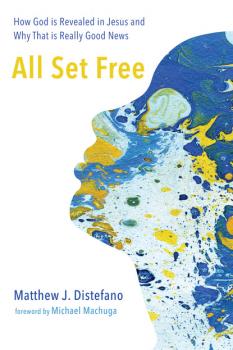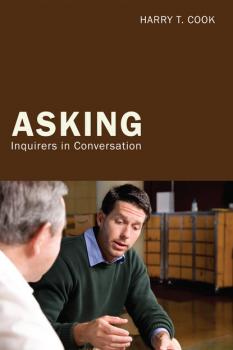Словари
Различные книги в жанре СловариNew Wine into Old Wineskins
You're hired to be our new senior minister! Consider what you might be asking yourself: Where would you even begin? What changes will need to be addressed? How would you approach the beginning of your ministry? New Wine into Old Wineskins seeks to answer these very questions.
New Wine into Old Wineskins takes you on a journey of visiting, or revisiting, the biblical mission of the church and keeping this fundamental principal in a changing environment. If a leader's task is to help define the mission, then the leader must also implement and execute said mission. This book will help the new senior minister, New Wine, to implement a change process for the established church, Old Wineskins.
Our Lives Matter
Our Lives Matter uses the tenor of the 2014 national protests that emerged as a response to excessive police force against Black people to frame the book as following the discursive tradition of liberation theologies broadly speaking and womanist theology specifically. Using a womanist methodological approach, Pamela R. Lightsey helps readers explore the impact of oppression against Black LBTQ women while introducing them to the emergent intellectual movement known as queer theology. The author privileges their narratives and experiences as she reviews several doctrines and dogma of the Christian church. Theological reflection on contemporary debates such as same-sex marriage and ordination rights make this book a valuable resource to clergy, students of theology, LGBTQ persons and allies.
All Set Free
What is the ending to the human drama? Will all be reconciled to God in the end? Does God demand an altar, a corpse, and blood? Or, rather, is the Christian God set apart from all the other gods throughout history? All Set Free sets out to answer some of the more difficult questions Christians today are faced with. It will challenge the Augustinian understanding of hell and the Calvinist understanding of the atonement; replacing them with a more Christ-centered understanding of both doctrines. This book will also use the work of Rene Girard in order to reshape how many understand «what it means to be human.» Then and only then should we ask: «Who is God?» Come explore what has become Matthew's theological pilgrimage to this point. Come discover the God of peace.
Abraham Kuyper, Conservatism, and Church and State
Students of Reformed theology recognize that Abraham Kuyper was one of the premier theologians of the last two centuries. He was also a notable politician, founding the Antirevolutionary Party and serving as a member of the Dutch Parliament and eventually becoming prime minister of the Netherlands. He produced a body of neo-Calvinist political thought that has enduring value for the political engagement of the Christian community in our time. His political theory stands in continuity with John Calvin's doctrine of the church and social reformation, even as the current James Madison's teaching on church and state impacted it. While contemporary Kuyperians at times reflect a leftward political orientation, Kuyper was a champion of political conservatism who stood in the trajectory of fundamental conservative principles affirmed by Edmund Burke and more recently by Ronald Reagan. He believed that the conservative emphasis upon natural law, the need for limited government, and the importance of freedom was rooted in biblical revelation and was therefore valid for all nations at all times.
The Trouble with "Truth through Personality"
In an era when the cult of personality has overtaken the task of preaching, Charles W. Fuller offers an engaging query into the necessary boundaries between the person of the preacher and the message preached. By thoroughly evaluating Phillips Brooks's classic «truth through personality» definition of preaching, Fuller brings to light a substantial error that remains in contemporary homiletics: namely, the tenuous correlation between Christ's incarnation and Christian preaching. Ultimately, Fuller asserts a sound evangelical framework for preaching on revelational, ontological, rhetorical, and teleological grounds. Preachers who desire to construct pulpit practice upon a robust evangelical foundation will benefit from Fuller's contribution.
Asking
Too much communication in the world of religion is one-way: from clergy to lay persons who, if ever respectfully engaged, would become serious inquirers. The most desirable means of effective engagement is the give-and-take method of eliciting and clarifying questions and then drawing the questioner into the answering process. That, combined with the intellectual rigor of Enlightenment thinking in the formation of beliefs, will go a long way toward making contemporary religion a here-and-now enterprise, thus saving it from hopeless irrelevance.
Pneuma and Logos
The role of the Holy Spirit in the writing of Scripture and the role of the Holy Spirit in the understanding of Scripture are corollary ideas. The first one of these–usually referred to as the Inspiration of Scripture–has been extensively discussed by the Early Church Fathers, theologians, and other Bible scholars from the earliest centuries of the Church until the present. Likewise, the second of these corollary ideas–the role of the Holy Spirit in the understanding of Scripture–has been widely considered from the time of the Early Church Fathers. However, this idea, usually referred to as the Illumination of Scripture, has not been as extensively discussed as the corollary doctrine of Inspiration. Consequently, many aspects of the Holy Spirit's relationship to Biblical Hermeneutics remain open for fruitful discussion.
The notion that the Holy Spirit plays some role in the interpretative process of understanding Scripture raises many issues and questions. Does the Holy Spirit even play any role at all in the interpretative process? If so, what, then, is the role of the human interpreter in relationship to that of the Holy Spirit? Can the Holy Spirit's role be conceptualized in some meaningful way? If and when the Holy Spirit plays a role in interpretation, what difference does it make in the outcome of understanding?
This book intends to further the discussion of these and other issues related to the idea of the role of the Holy Spirit in Biblical Hermeneutics. It briefly surveys both past and contemporary thought on this theme. It then suggests how the Holy Spirit's role might be conceptualized. Since this conceptualization is necessarily metaphorical, various models are presented as vehicles for furthering discourse on the subject. Finally, it attempts to describe the results of the Holy Spirit's activity of illumination and suggests areas for further study on the topic.
Sex, Lies, and the Truth
We are in the midst of a rapidly changing sexual scene. Casual sex between consenting adults scarcely gets a second look, marriage is increasingly viewed as an at-will contract, attitudes toward same-sex relationships have done an about-face, and the family has been redefined in ways that challenge how we effectively minister to those inside and the church. If we as believers value our call to be the salt and light of society, then we must begin to think biblically and strategically about how to engage our sexually volatile culture. Sex, Lies, and the Truth aims to help Christians in all walks of life do just that: It addresses the question of how to develop a Christian ethic in an increasingly post-Christian society by becoming biblically informed and culturally conversant with a topic that promises to be one of the foremost challenges the church will face in the coming years.
Logizomai
Logizomai is the Greek word meaning «to reckon,» or «to reason.» The Apostle John identifies Jesus as the «Logos» (John 1:1, 14)-the Divine Word. To most Christians in the West today, Christianity is nothing more than a duty, a feeling, a name badge, or something one does on Sunday's. But Christianity is more than that. Christianity is a complete worldview that makes sense of the world. A right theology results in a right understanding of the world and the gospel is that right theology. The Church is sick because she is shallow. What we need is a logizomai faith-a reasonable faith. Such a reasonable faith encounters hardships with perseverance, animosity with love, and evangelism with Spirit-filled skill. Most refuse to share their faith because they don't understand it and are unable to articulate it. If Christianity is logizomai, then the issues we face today present no real challenge. We must, therefore, learn to apply the truths of the gospel to our dying, hurting world. To do so, we must have reason, rooted in the gospel and inspired by the cross.
Freedom Unlimited
How are we to understand the freedom for which Christ has set us free (Gal 5:1)? Could it be that we have barely glimpsed what this might mean? Most theological accounts of freedom frame the discussion in terms of heteronomy or autonomy. In the Protestant tradition, Calvinists are known for championing the former and Arminians are credited with advocating the latter. More recently, open theists, in significantly modifying the Arminian paradigm, argue that neither tradition provides a satisfying account of human freedom and propose a more libertarian form of autonomy. This book joins the debate at this point, not in order to take sides, but to suggest a theology that can get beyond (not between) the heteronomy and autonomy that seem to exhaust the present theological options. Clark Pinnock serves as the chief protagonist because of his role as a leading figure in the «Openness of God» movement. Because his own development can be described as a pilgrimage from Calvinism to Arminianism to open theism, the present work is able to offer its sympathetic critique in the form of an invitation: that we continue to journey in the spirit of openness beyond both heteronomy and autonomy towards a view of divine and human freedom that is covenantal, participatory, and unlimited.









